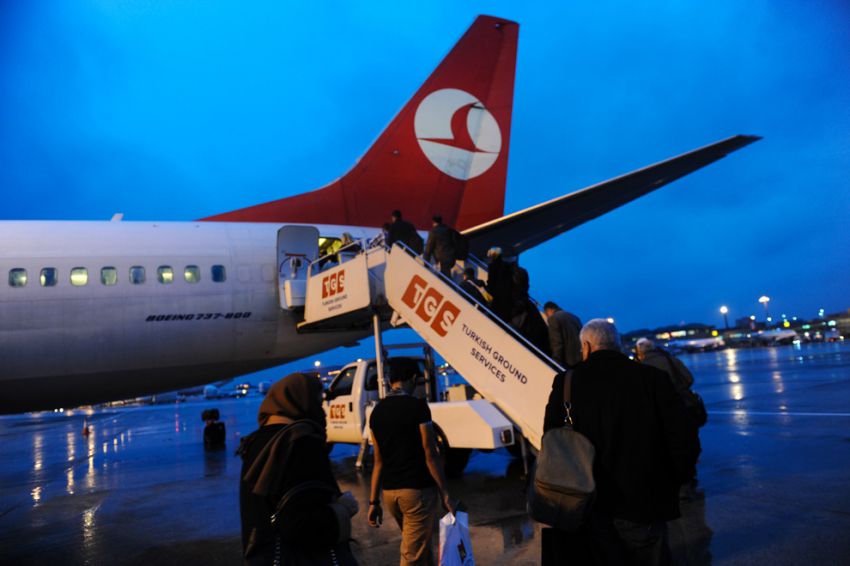The United States announced on Tuesday that is imposing a ban on electronic devices carried by travelers coming to the US from ten airports in the Middle East and North Africa.
The Trump administration said that the restrictions were a response to unspecified terror threats.
The Department of Homeland Security will require passengers coming to the United States from airports in Jordan, Egypt, Turkey, Saudi Arabia, United Arab Emirates, Kuwait, Morocco and Qatar to check electronic devices larger than a cell phone such as tablets, portable DVD players, laptops and cameras.
Officials said the decision had nothing to do with President Donald Trump’s efforts to impose a travel ban of six majority-Muslim nations. A DHS spokeswoman said the government “did not target specific nations. We relied upon evaluated intelligence to determine which airports were affected.”
All 10 airports are in majority-Muslim countries.
The airports touched by the ban are Queen Alia International in Amman, Jordan; Cairo International in Egypt; Ataturk in Istanbul, Turkey; King Abdulaziz International in Jeddah, Saudi Arabia; King Khalid International in Riyadh, Saudi Arabia; Kuwait International; Mohammed V International in Casablanca, Morocco; Hamad International in Doha, Qatar; and the Dubai and Abu Dhabi airports in the United Arab Emirates.
No US carriers make direct flights from these airports, so they are unaffected by the ban, which will hit Royal Jordanian, EgyptAir, Turkish Airlines, Saudi Airlines, Kuwait Airways, Royal Air Maroc, Qatar Airways, Emirates and Etihad Airways.
The ban does apply to US citizens traveling on those flights. It does not apply to crew members on those foreign carriers. Officials did not explain why the restrictions only apply to travelers arriving in the United States and not for those same flights when they leave the US.
Laptops, tablets and portable game consoles are affected by the ban, but they may still be stowed in the hold in checked baggage.
The airlines and their host governments have already been informed of the order by US officials, and some of them have begun informing passengers about the restriction.
Airlines will be responsible for policing the cabin ban, and if they fail to do so could lose their rights to operate US routes. The airlines have until Friday to comply with the new restrictions.
DHS will also allow passengers to use larger approved medical devices. The agency said the procedures would “remain in place until the threat changes” and did not rule out expanding to other airports if circumstances changed.
The new restrictions were prompted by reports that terror groups want to smuggle explosive devices in consumer electronic devices, officials told reporters on a conference call Monday.
The group said “intelligence indicates that terrorist groups continue to target commercial aviation, to include smuggling explosive devices in various consumer items.”
The government has been worried about terror groups attempting to bomb a commercial aircraft, but an official on the call repeatedly declined to offer any details about the threat that prompted the move.
Reuters reported Monday that the move had been under consideration since the US government learned of a threat several weeks ago.
US officials have told Reuters that the information gleaned from a US commando raid in January in Yemen which targeted al-Qaeda in the Arabian Peninsula included bomb-making techniques.
In July 2014, the Homeland Security Department stepped up security of US-bound flights, requiring tougher screening of mobile phones and other electronic devices and requiring them to be powered up before passengers could board flights to the United States.
